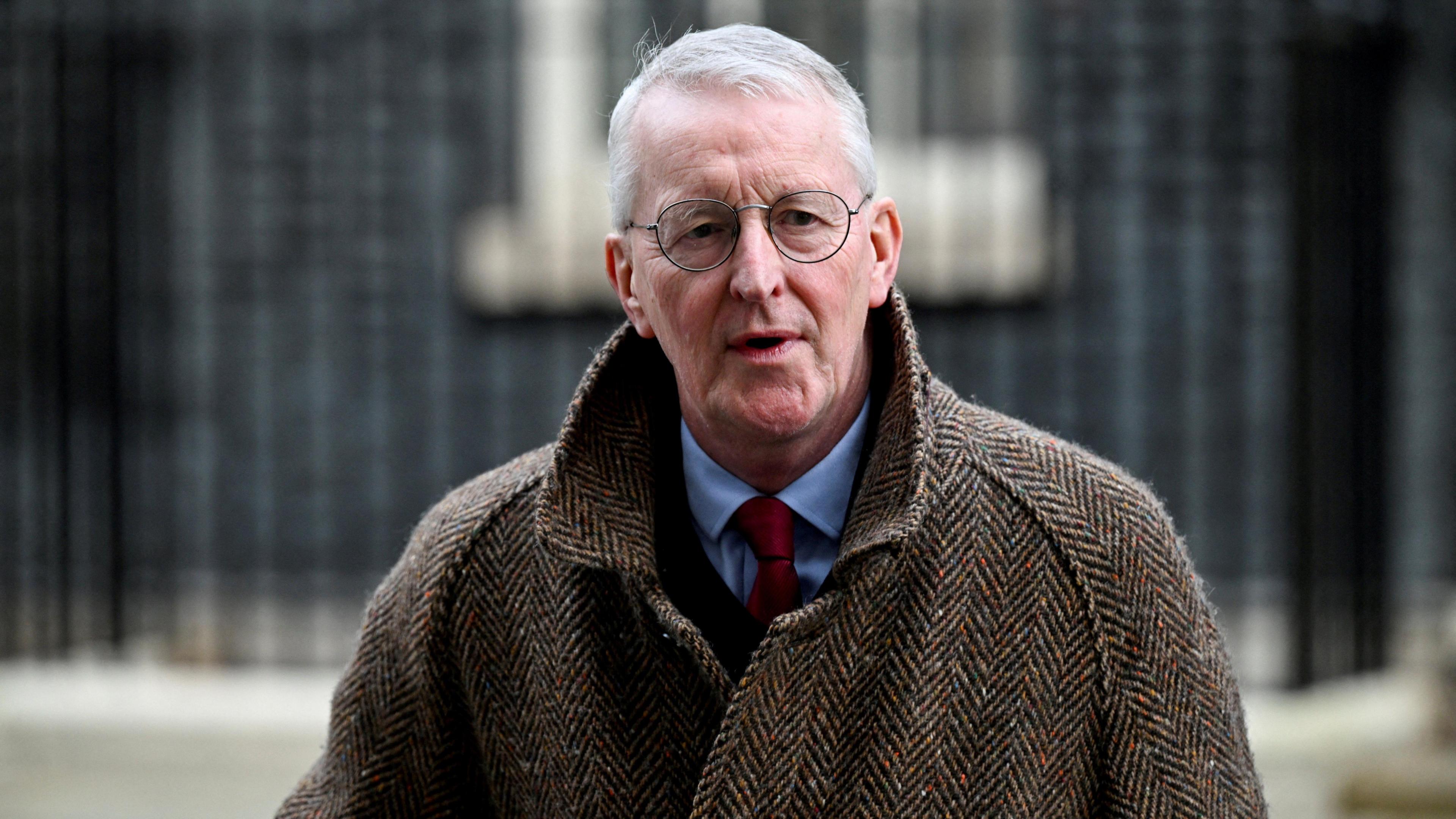Post-Brexit rules mean customers pay more – catering boss
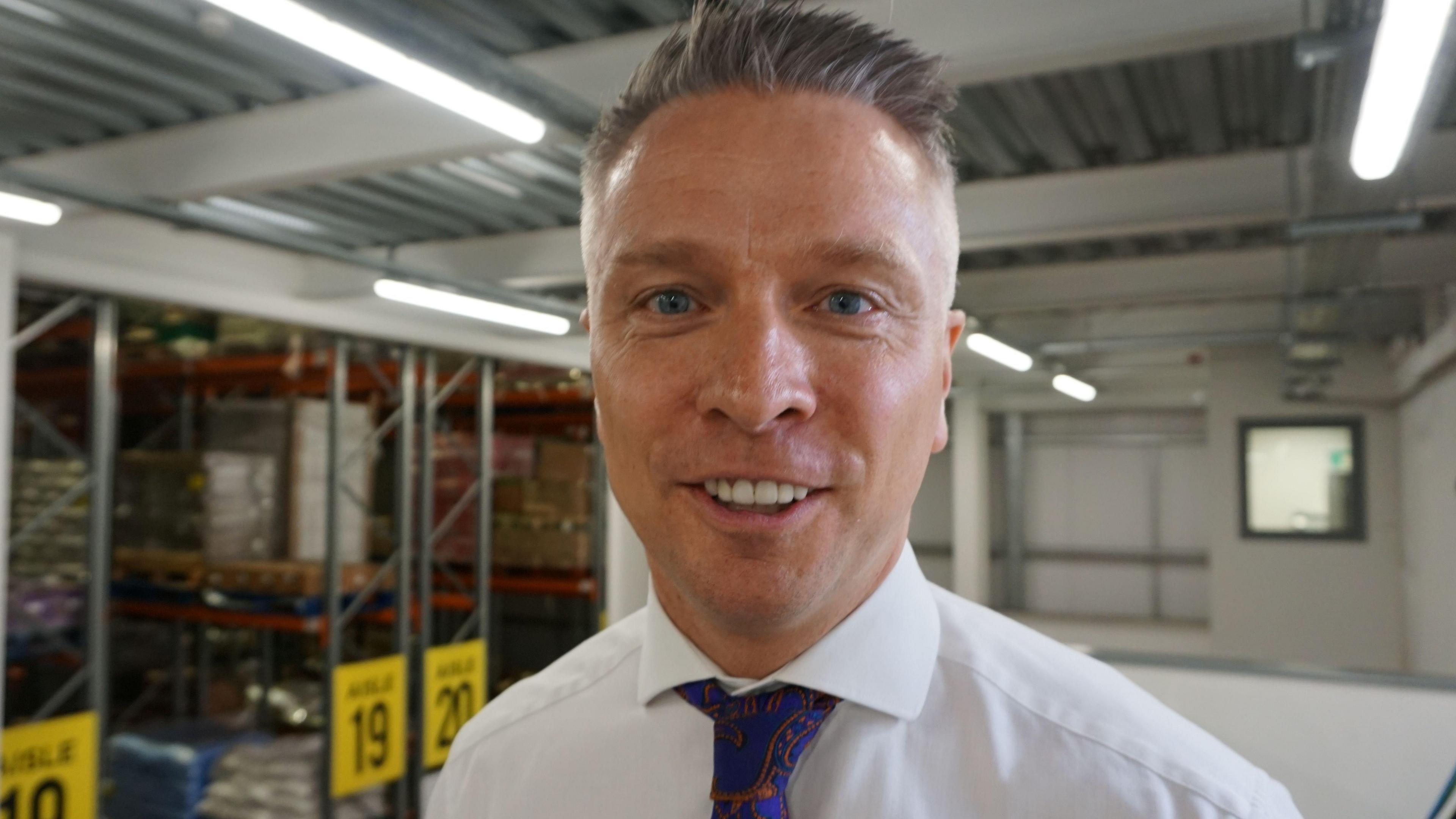
Andrew Lynas said it was "difficult to figure out" the Windsor Framework
- Published
It is "reality" that the cost of the Windsor Framework has to be passed onto customers, one of Northern Ireland's biggest catering suppliers has said.
Andrew Lynas, of Lynas Foodservice, said Brexit paperwork, certificates, staffing, and additional costs from suppliers in Great Britain have led to customers paying more, adding he "doesn't want and doesn't like it".
It comes as the House of Lords' Northern Ireland Scrutiny Committee found the Windsor Framework is "impossible to navigate".
The government said the framework was "the only workable solution" that safeguards Northern Ireland's place in the UK internal market and EU single market, and ensures no hard border on the island of Ireland.
The Windsor Framework is a Brexit deal for Northern Ireland that was formally adopted by the UK and EU.
It is designed to make trade between Northern Ireland and the rest of the UK easier.
The report said the UK government must address the difficulties businesses are facing.
Mr Lynas told BBC News NI that it was "still difficult to figure out the whole Brexit Windsor Framework agreement".
"The reality is we do pay more, there is more paperwork, there are more health certificates, lots of checks, different things.
"Our stock holding is up half a million pounds because of it and I would say that the cost of goods is an extra 1% to 3% versus what you would pay in the mainland."
He said he has been working through the "different iterations" of protocols for nearly five years.
Mr Lynas said the additional cost that suppliers, particularly in Great Britain, put on businesses had passed through to the customer.
He said it had been a tough 12 months, which included the budget in October 2024 and national insurance changes.
What did the Windsor Framework report say?
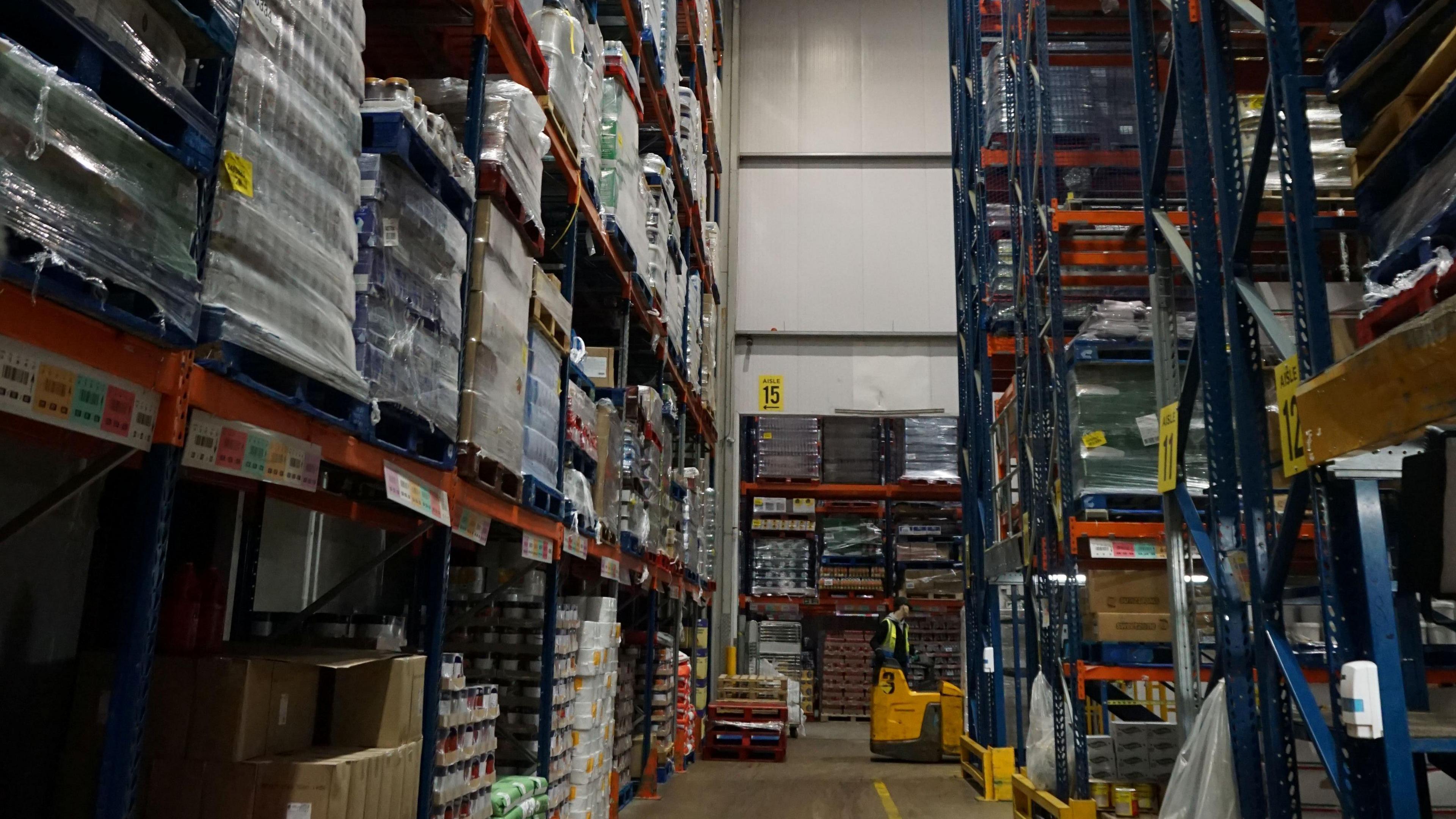
Brexit paperwork, certificates, staffing, and additional costs from suppliers in Great Britain have led to the rising costs of goods
The Northern Ireland Scrutiny Committee found the arrangements under the Windsor Framework are "overwhelmingly complex and impossible for stakeholders to navigate".
Chair of the committee, Lord Carlile, told BBC News NI the Trader Support Service (TSS) must be redesigned.
The TSS was set up in 2020 to help businesses deal with new customs processes.
Lord Carlile said it should be "simplified" and supervised by the Cabinet Office.
"It should ensure that there is a one-stop shop to which businesses and social enterprises in Northern Ireland can go, and indeed social enterprises and businesses elsewhere trading with Northern Ireland, so that they can obtain speedy answers to avoid the complexities," he added.
Lord Carlile said the committee was keen to see the introduction of a hotline relating to EU laws applying in Northern Ireland, so people can access information easily.
The Northern Ireland Office (NIO) has been approached for a response.
Democratic Unionist Party (DUP) peer, Lord Dodds, said the findings of the committee "confirm what many in Northern Ireland and across the United Kingdom have long warned".
"Every day that this situation is allowed to persist further erodes Northern Ireland's constitutional position, harms consumer choice, and imposes unnecessary costs and burdens on businesses," he added.
"It is vital that this undemocratic framework is dismantled."
Sinn Féin deputy leader Michelle O'Neill said Northern Ireland has been forced out of the European Union without consent since Brexit.
She added that the post-Brexit reality meant that there has to be special arrangements, that come in the form of what is now the Windsor Framework.
"There are some issues that need to be resolved, but there just needs to be some pragmatism around ironing out the kinks that are there," she said.
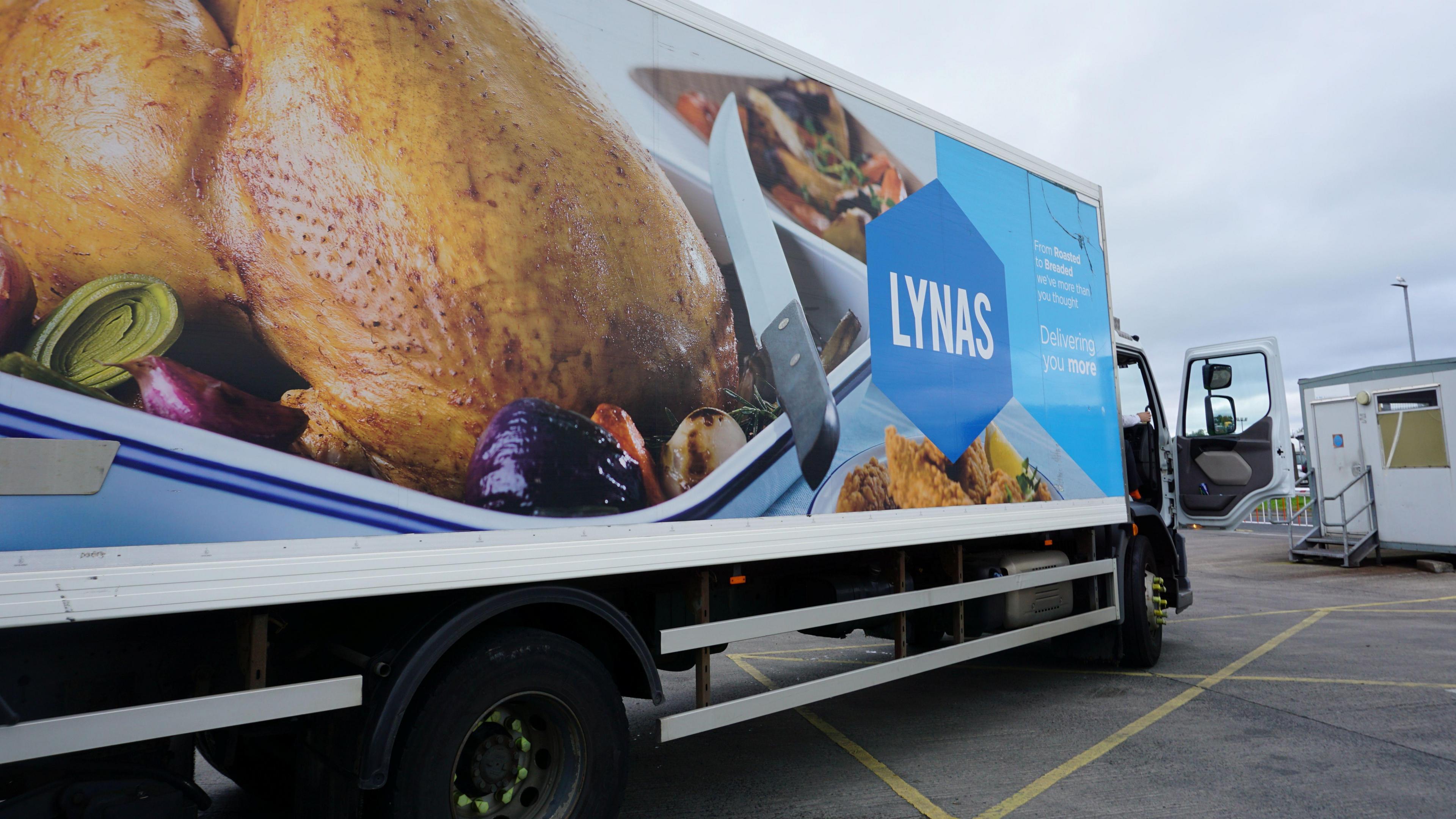
Mr Lynas said it had been a tough 12 months following the budget in October 2024 and national insurance changes
Mr Lynas said if you are an all-island business, the system of red lanes - set up for goods at Northern Ireland ports as a result of the Windsor Framework - does not work.
"The green lanes work brilliantly if you're a retail business in Northern Ireland - if you're bringing goods from Great Britain to Northern Ireland it's been a big improvement," he said.
"But the reality is if you're an all-Ireland business in any shape or form [and have to use the red lanes] then it doesn't work."
Talks between the UK and EU are resuming this autumn.
Mr Lynas said: "I think we need to have ambition in these next sets of talks to say, how can we eradicate that? How do we use technology? How do we use AI?
"How do we build on the trust that is there and say, let's actually make this work for the long term? And so we have an agreement for the next five to 10 years."
A government spokesperson said the Windsor Framework is "the only workable solution for Northern Ireland, safeguarding Northern Ireland's place in the UK Internal Market and the EU Single Market, and ensuring no hard border on the island of Ireland".
They said the government regularly engages with businesses and people in Northern Ireland "as we work to deliver greater prosperity and security".
"We will now consider the committee's findings and respond in due course."
What are the red and green lanes?
Red lanes and green lanes were set up as a result of the Windsor Framework to ease trade between Northern Ireland and the rest of the UK.
Goods arriving into Northern Ireland with minimal checks go into the green lane.
Those which could go across the border into the Republic of Ireland – and therefore the EU – use the red lane.
That means full customs paperwork and goods can be checked at the ports.
Related topics
- Published27 August

- Published4 September
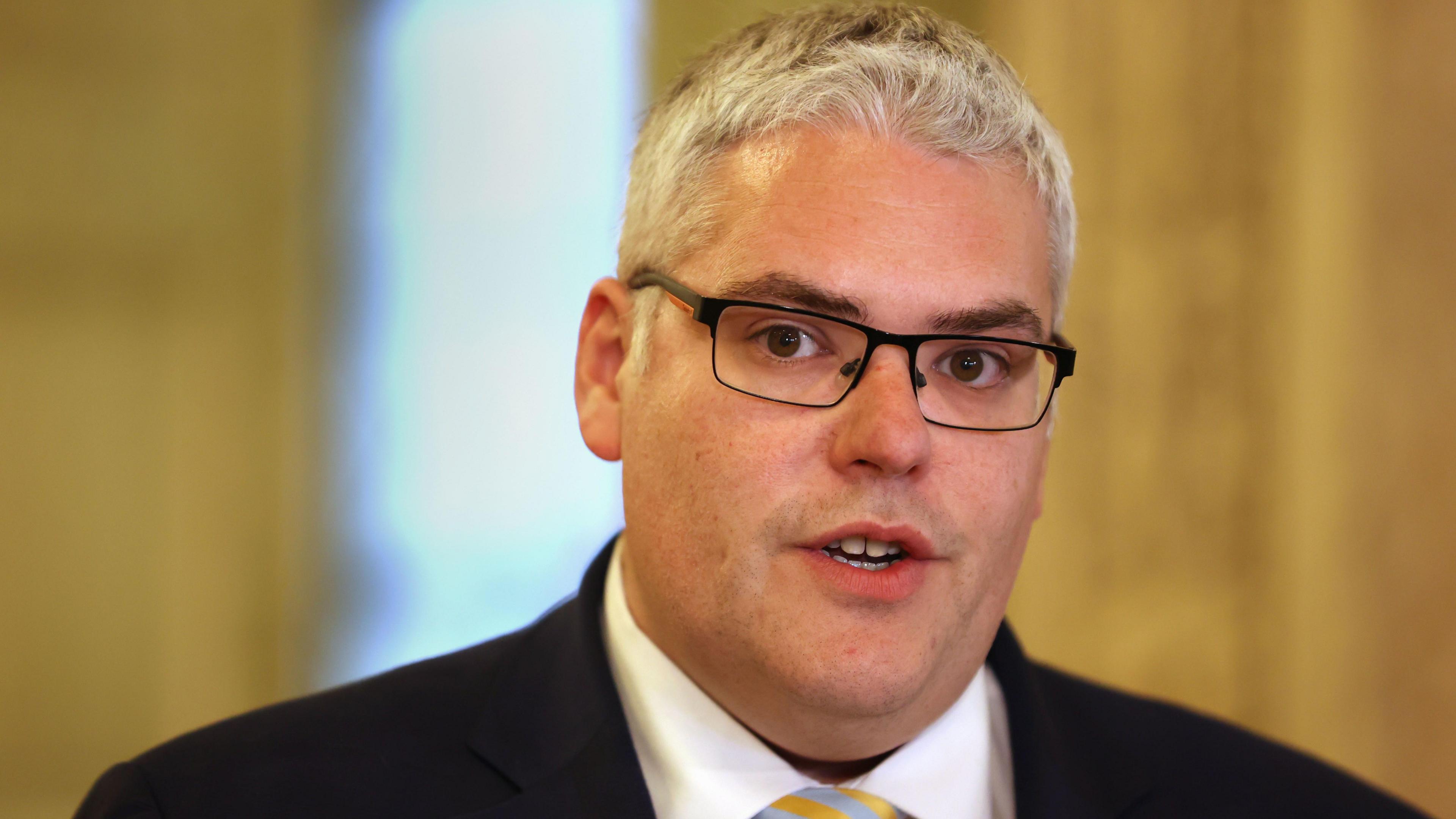
- Published30 October 2024
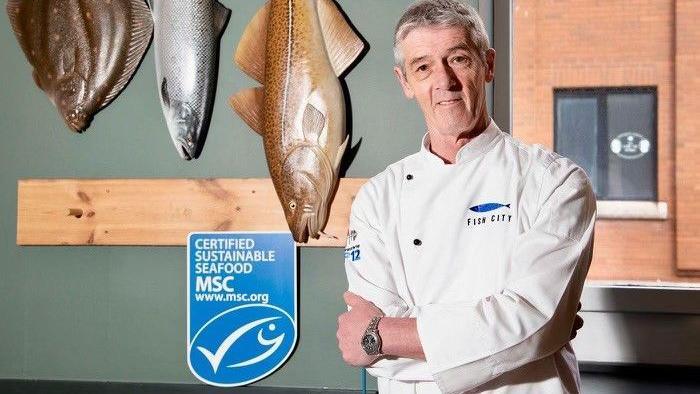
- Published2 February 2024

- Published4 March
